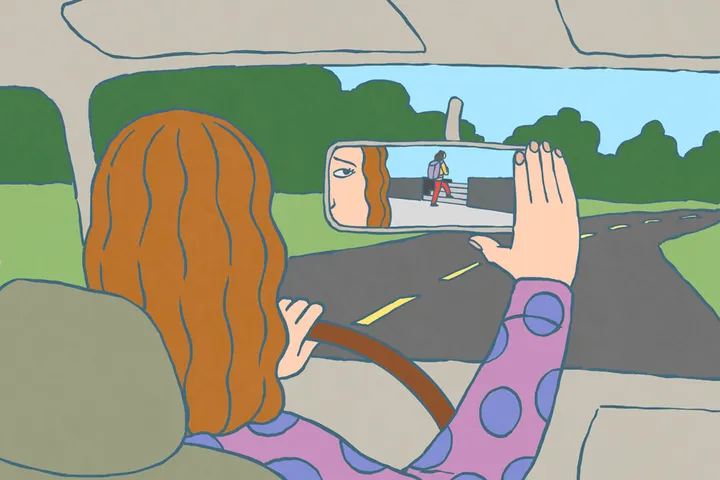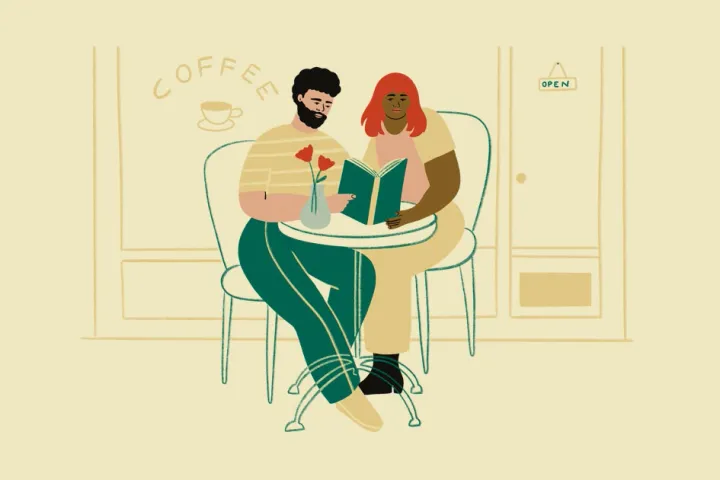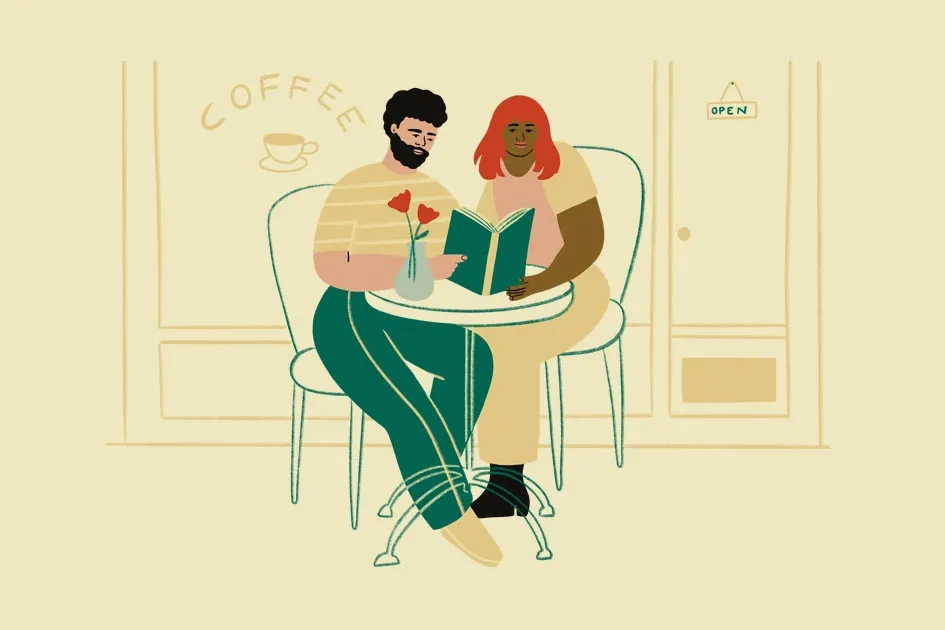I got a Bible! I got a Bible!”
The shouts of the autistic boy could probably be heard all around the dump where refugees picked through trash, looking for anything that might be useful to their survival. In the outskirts of Musina, South Africa, there are many such places. Dr. Corné Esterhuysen has met people in these circumstances—mostly women and children—when he and his wife distribute Bibles and In Touch Messengers. “You can see on their faces that they have no hope,” he says. “They have no shelter. It’s heartbreaking.”

Esterhuysen believes God made him a physician for a purpose and sees his work with patients from all walks of life as his calling and ministry. “I was Pavarotti’s physician when he was in South Africa, and I got to minister to his American nurse, who was going through a difficult time. I was able to pray with her. Each place you go is an opportunity to bring the love of Jesus—the cross and what Jesus has done—to people.” He tells of being the doctor on call at a Million Dollar Golf Challenge. At one point, he was summoned to the PGA director’s room because the man’s wife was in tears. “She had been diagnosed with breast cancer, was far from home, and didn’t know what was going to happen. She was suicidal. I was able to be the person to pray with her, to take her focus off her current situation and onto Jesus.”
“That’s why I love to be in partnership with In Touch,” says Esterhuysen. “I can be in a taxi and find out in a few minutes what the driver believes. I never get out of the car immediately. I always have a Messenger in my bag and can hand it to him, show how it works, and so on.”
Delivered to Deliver
Dr. Esterhuysen was born in Johannesburg in 1969 but grew up in a mining city about 30 kilometers from the capital’s center. Though he had been raised in the church, it wasn’t until he was at university that he made a decision to follow Jesus. “I couldn’t pray like my friends,” he says. But one night, after struggling to connect with God, he woke up wondering what would happen if he died. The experience shook him. He sought the counsel of believing friends, and as they spoke with him, explaining how to be saved, he knew that he had never truly given his life to Christ. Seventeen years later, Esterhuysen is still a devoted follower of Jesus, preaching the gospel with the help of his wife and their two children—a 10-year-old daughter and a 6-year-old son. “Each time we go anywhere in the world, it’s a mission trip for my family. We take many things with us to share the gospel, including Messengers.”
Esterhuysen has always made efforts to share his faith, but there was a turning point in his zeal. One day, during a church service, the pastor asked the congregation what season of life they were in. “My wife and I realized we were in the winter of our lives,” he says. “We were not reaching out to the world as we should. In South Africa, Christianity is the majority religion, but it’s also a superficial Christianity—so people don’t get their hands dirty.” He began praying about what to do. And eventually, God led his family to move to Rockhampton, Australia, where he was able to quickly find a job. The initial plan was to stay for only a year. But now, several years later, they are Australian citizens in what he calls “the great southland of the Holy Spirit.”
“Each time we go anywhere in the world, it’s a mission trip for my family. We take many things with us to share the gospel, including Messengers.”
“God moves people out of their comfort zones to reach the lost,” says Esterhuysen. “One of the biggest challenges we all face is to be obedient to where God wants to move and use us. But when God asks you to give up your family and homeland to reach others, you realize that obedience is better. We have been blessed in so many ways, and it is truly a privilege to see what God has planned for us every day.”
On one occasion, Esterhuysen officiated the wedding for friends on Mauritius, an island nation off the coast of Africa where many people speak French. He had English-French Messengers with him, which he offered to people who were selling various items on the beach. “We started sharing about Jesus, and a Muslim guy looked at us and said, ‘I want this. I need this. How can I get more information? I’ve been searching for this all my life.’ We were able to supply him with one of the Messengers.”
But that doesn’t mean there isn’t also work left to do in his homeland. Esterhuysen’s father-in-law lives in South Africa and owns a game farm at the Zimbabwean border, in the northern town of Musina (also known as Messina). It was there, during one of their family trips home, that Esterhuysen met a bishop and a pastor who work on the farm to supply shelter and food for refugees coming from southern and middle Africa. The shelter is makeshift, and the 150 male refugees who stay there sleep on the concrete floor under blankets and share only one bathroom/wash area. (Women and children are placed in another shelter.) There’s also a small storage room for supplies to be distributed to the hundreds of refugees from Zimbabwe, the Democratic Republic of Congo, and other neighboring countries. The facility, which gets no support from the government, is run mostly on donations and bank loans. “We have 500 people coming for Christmas service,” the bishop said to Esterhuysen. “We did not know what to give them, and God sent you guys out of nowhere with Messengers.”
“When God asks you to give up your family and homeland to reach others, you realize that obedience is better. We have been blessed in so many ways.”
Musina also has a large Chinese community. The South African government has allocated space for these immigrants to produce low-cost clothing. The biggest centers of Chinese people have been around for about 15 years, but newer groups are being pushed to more remote areas. “No one reaches out to them,” says Esterhuysen. “There are a lot more Mandarin-speaking people in the southern parts of South Africa than we know. They live in their shops and have very little.” This group struggles to communicate, so receiving Mandarin-language Messengers from Esterhuysen has been a source of delight.
Esterhuysen says that though South Africa as a whole is open to the gospel, “the biggest obstacle is, people are closed and have set their minds on certain things. There’s a lot of brokenness and poverty. We give the gospel but also supply them with food. In the refugee camp, not being able to help all of them is difficult. Someone might slip through without getting a Bible or bag of food.”
The Good News Down Under
In Australia, sharing the gospel is harder because of the diversity of people and belief systems. “The challenge is to present the gospel in a way that gets them thinking,” says Esterhuysen. “God has placed me where I can meet many doctors—from Sudan, Pakistan, India, Bangladesh, Singapore, and China. Some are with us for just six months before moving to other centers in Australia.” Esterhuysen wants to make them think about whether what they believe is the truth and to ask themselves, What do I actually believe?

“Everyone here knows I’m a Christian,” he says. “I pray for my patients. Even if they object, I do it quietly. A lot of them have been healed through prayer and nothing else. The biggest healing is when someone comes to Jesus.” But remaining open about his faith comes with a cost. “In the hospital, I get ridiculed or called ‘the weird one’ because I follow Jesus openly. When a patient is dying, though, they call me to pray. My atheist colleagues step away in those situations because they don’t know what to do.”
Esterhuysen recalls one of his patients, Gary Smith, who experienced liver failure. “Gary was a hard man, always doing his own thing, but he knew he was dying. We frequently treated him at the hospital, draining fluid from his abdomen. His condition deteriorated, and he did not meet the criteria for a liver transplant.”
Esterhuysen was able to share the gospel with Smith and gave him a Messenger, which he started using. “One morning when he was in the hospital again, he called me and told me he wanted what I have in Jesus. We became close friends, and I shared the love of our heavenly Father with him every moment we were together. Three weeks later, I was asked to read a poem and Bible passages at his funeral.”
Esterhuysen says his family’s passion for evangelizing comes from the Holy Spirit. His philosophy is that he can’t tell people to share the gospel if he isn’t doing it himself and telling others how God has helped him do it. “In the end, it is not about me or my wife or my children. It is all about our heavenly Father and our Lord Jesus Christ and how we can bring the gospel to a dark, hungry world.”
Photography by Alexia Webster





